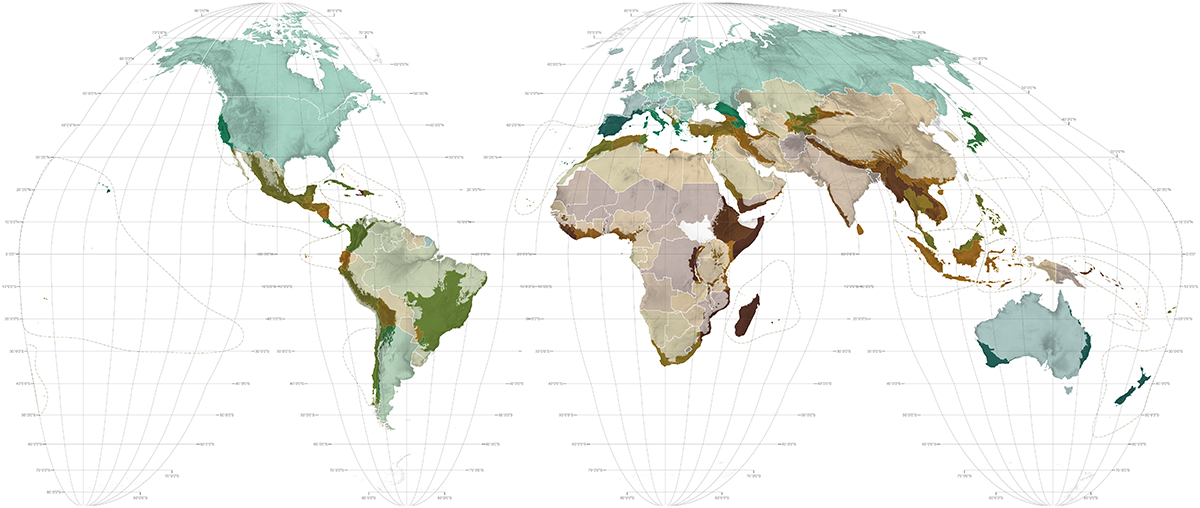This environmental performance map is based on the 2016 Environmental Performance Index (EPI) created by the Yale Center for Environmental Law and Policy, the Yale Data Driven Environmental Group, and the Columbia University Center for International Earth Science Information Network in collaboration with the World Economic Forum and with support from the Samuel Family Foundation and the McCall MacBain Foundation. 1 The overall rankings are created by assessing performance across the following indicators: nitrogen use efficiency and balance, environmental risk exposure, air pollution, household air quality, unsafe drinking water and unsafe sanitation, waste water treatment, access to electricity, carbon intensity trends, terrestrial and marine protected areas, species protection, fish stocks, and tree cover loss. The 2016 rankings for the 142 nations within whose sovereign jurisdiction the hotspots lie is listed on the National Performance Index. 2
1 A. Hsu, et al., 2016 Environmental Performance Index (New Haven, CT: Yale University, 2016). Available at http://epi.yale.edu/sites/default/files/2016EPI_Full_Report.pdf.
2 Ibid.
1. Yale Center for Environment. 2016. Yale Environmental Index
A. Hsu, et al., 2016 Environmental Performance Index (New Haven, CT: Yale University, 2016). Available at http://epi.yale.edu/sites/default/files/2016EPI_Full_Report.pdf.
2. Hotspots
Critical Ecosystem Partnership Fund, "The Biodiversity Hotspots," http://www.cepf.net/resources/hotspots/pages/default.aspx (accessed July 1, 2014). Data made available under the Creative Commons BY-SA 4.0 License: https://creativecommons.org/licenses/by-sa/4.0/legalcode.

